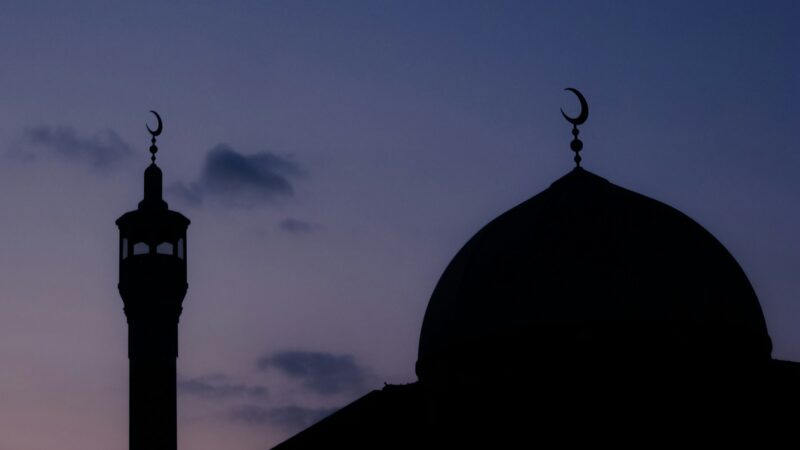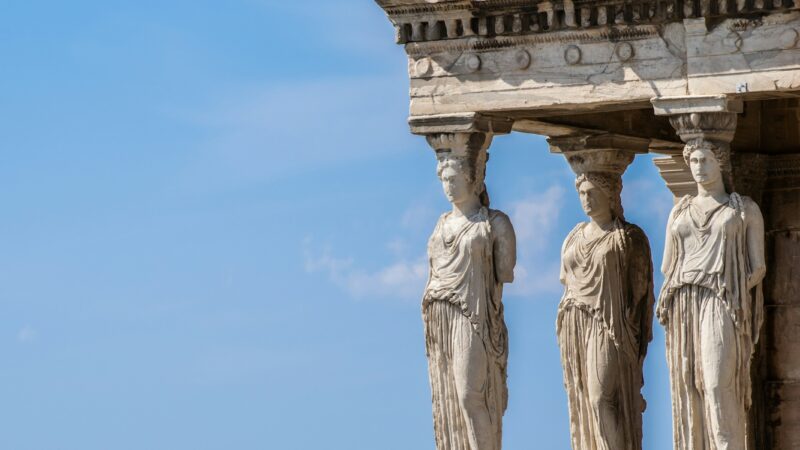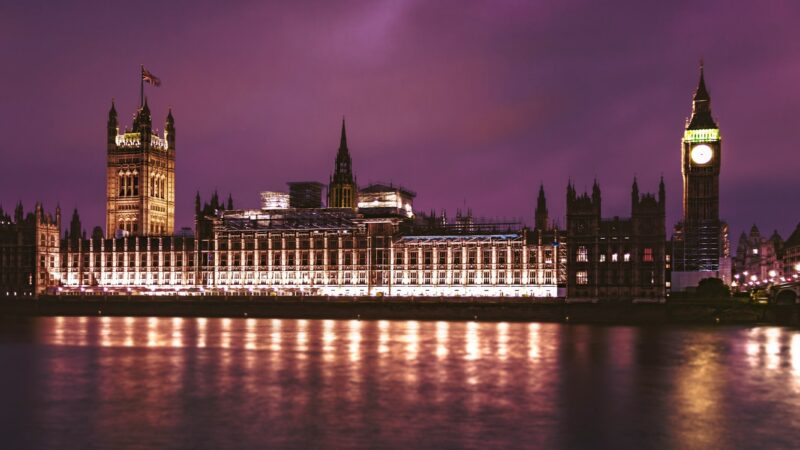Beware The British Dream
‘Dying societies accumulate laws like dying men accumulate remedies.‘
– Nicolás Gómez Dávila
On an economic, cultural, and political level, Britain has visibly become more American over the past few decades. Partially due to globalising processes which have occurred throughout the USA’s 30-to-40-year hegemony, the Americanisation of Britain is largely downstream from domestic decisions to ‘modernise’ the country. Possibly the most famous incident of Americanisation in recent British history was the creation of The Supreme Court, an artificial instalment of the Blair-Brown governments with precisely zero political or legal precedent, lacking any institution before it which can accurately or honestly be described as an official or spiritual predecessor.
Despite its arbitrary and fabricated existence, The Supreme Court has been reimagined as an ancient institution of Britain, and has visibly impacted the structure, practice, and direction of contemporary politics, from overriding the prorogation of Parliament to striking down the policy of an elected government as ‘unlawful’. Even basic political education has been contorted with irrelevant concepts and downright myths to assimilate this alien institution. Britain’s current and future leaders and representatives understand and articulate their nation’s political system through an American framework, believing Britain is founded on a Montesquieu-esque ‘separation of powers’ and has an ‘uncodified constitution’.
However, it’s abundantly clear the Americanisation process intends to contaminate much more than just the laws of Britain, but the spirit which said laws are meant to be derived and understood. Up until the early 2010s, the concept of ‘The British Dream’ simply did not exist. If one enters ‘The British Dream’ into Google’s Ngram Viewer, usage of the term is few and far between with static growth up until the early 2010s, throughout which the term skyrockets.
Loosely related ideas of social mobility and aspiration were well-established throughout preceding decades, but the specific notion of ‘The British Dream’ – as an explicit reference and/or equivalent to the American Dream, functioning as an integral, binding aspect of our national identity – really had no cultural, political, or academic significance. Before the 2010s, the small handful of instances in which The British Dream was mentioned usually referred to the non-existence of such a concept. In 2005, Boris Johnson said the UK had failed to articulate a British Dream comparable to the Americans, suggesting a key step towards realising such an ideal involves ensuring everyone in the UK speaks English.
Following the 7/7 Bombings, then-Conservative leader Michael Howard described The British Dream in aspirational terms, linking it to ideas of fairness, equality of opportunity, and the ‘need to break down the barriers that exist in too many people’s lives – and minds – that prevent or deter them from making a success of life.’ From what I’ve observed, a good chunk of the pre-2010 references to ‘The British Dream’ are directly referring to Michael Howard’s usage and understanding of the concept.
In 2007, the concept was described in similar terms by academic Professor George Rodosthenous, a specialist in musical theatre writing on the story of Billy Elliot. A story about a young boy escaping his Northern background, initially prevented by his uneducated, toxically masculine, Blue Labour trade unionist father, to become a London-based ballet-dancer and proud LGBTQI+ ally. Rodosthenous identified The British Dream as ‘a term which needs urgently a definition’, defining it as ‘the desire to do better than one’s own parents.’
Announcing his bid to lead UKIP in 2016, then-MEP Stephen Woolfe defined ‘The British Dream’ as ‘the chance to succeed in your life, no matter your postcode, your gender or the colour of your skin’, using his mixed heritage (Jewish mother, African-American father) and council estate upbringing as proof.
The concept is even used by high-ranking politicians. In her 2017 Conservative Party Conference speech, then-Prime Minister Theresa May promised to bring back ‘The British Dream’, defining it as the idea ‘each generation should do better than the one before it.’ Similar to Woolfe, she referenced her family background (specifically, her grandmother’s role as a domestic servant) to support the notion that upward mobility is central to Britain’s identity.
In a BBC interview discussing ‘The British Dream’ in 2017, Professor Pamela Cox, social historian at the University of Essex, reaffirmed this interpretation, stating: ‘The British Dream has come to stand for home ownership, having a secure job and a living standard higher than your parents.’
In an interview with The Telegraph in 2022, Conservative MP Nadhim Zahawi declared: ‘I am living the British dream’, having gone from an Iraqi child refugee to Chancellor of the Exchequer (albeit very briefly) and becoming one of several contenders (again, albeit very briefly) for Prime Minister and Conservative Party leader.
So where does the term come from? For the most part, present usage of The British Dream can be owed to David Goodhart’s book of the same name. Published in 2013, it documents the success and failures of post-war immigration to the UK. However, for the most part, the book is an extension of the ideas produced in previous works by Goodhart, so much so that prising them apart feels like splitting hairs.These works include ‘Too Diverse?’, a widely read essay for Prospect Magazine published in 2004, and ‘Progressive Nationalism’, a follow-up pamphlet published in 2006, the latter of which is particularly important, given that it constructs a ‘solution’ to present problems whilst the former is entirely analytical.
‘Politicians of the centre-left in Britain, and elsewhere in Europe, are trying to raise the visibility of national citizenship in response to growing anxieties about identity and migration in our more fluid societies – but they often do so defensively and uncertainly. Britain does need a clearer idea of citizenship and a robust protection of the privileges and entitlements associated with it. Indeed, an inclusive, progressive, civic British nationalism – comfortable with Britain’s multiethnic and multiracial character and its place in the European Union (EU) – is the best hope for preserving the social democratic virtues embodied in a generous welfare state and a thriving public domain.‘
Initially directed at the British centre-left, support for Goodhart’s proposal mostly stemmed from the Tory and Tory-adjacent right. Since 2017, Goodhart has been Head of the Demography, Immigration, and Integration Unit at Policy Exchange, one of several free market, centre-right think tanks. However, this shouldn’t be surprising. Despite hailing the ‘social democratic virtues’ of Britain, the thrust of Goodhart’s proposal is considerably (albeit, not entirely) Thatcherite in nature, making Trevor Phillips’ ‘liberal Powellite’ accusation correct in at least one regard.
Goodhart identifies himself as part of the broader post-liberal movement, of which Progressive Nationalism is but one of several ideological tendencies. I shall elaborate on post-liberalism (and my own personal issues with it) in a longer piece. The important point here is that post-liberalism is not anti-liberalism (as post-liberals will eagerly remind you) and aspires to make alterations – in their words, a ‘rebalancing’ of a lop-sided political order – within the prevailing paradigm of liberal-democratic capitalism; an arrangement perceived to have triumphed over all alternatives, thereby forming the basis of any supposedly legitimate arrangement.
As such, the compatibility of a post-liberal doctrine and Thatcherism (despite their widely publicised disagreements) shouldn’t come as a shock. Thatcher herself consistently defended the free-market for its ability to generate prosperity which could be taxed as revenue to fund and improve public services – the type of institutions Goodhart encourages us to unite around in an increasingly diverse society. Thatcher’s influence on the development of The Blob also goes hand-in-hand with this point, as does the ease by which Blair built upon her legacy, but I digress.
Intuitively, Progressive Nationalism seeks to shape a ‘progressive national story… about openness and opportunity’ – that’s the progressive element, enabled largely (albeit far from exclusively) by bringing immigration ‘down to more moderate and sustainable levels’ – that’s the nationalist element. Similar to other post-liberal projects, it pulls from both the centre-left and the centre-right, aspiring to reconfigure the content of the political centre within its pre-established ideological parameters.
In specific terms, Progressive Nationalism posits a strong state can and should provide cultural and economic security for the exclusive benefit and enjoyment of its citizens, ensuring a basic degree of monoculturalism in an otherwise liberal political order and a relatively generous welfare state in a broadly globalised free-market. Indeed, this doesn’t sound too bad, but a few details should be noted before going further.
Firstly, Progressive Nationalism (like many post-liberal tendencies) was explicitly designed to act as a containment strategy or ‘moderating’ ideology for the political centre; a comparatively liberal, inclusive, and civic alternative to potentially more conservative, tribalistic, and ethnocultural manifestations of nationalism:
‘The alternative to a mild, progressive nationalism is not internationalism, which will always be a minority creed, but either chauvinistic nationalism or the absence of any broader solidarities at all.‘
Secondly, unlike the more reactionary versions of nationalism that Goodhart dissuades against, Progressive Nationalism proclaims Britain’s transformation into a multi-ethnic society is both morally neutral and a foregone conclusion. For all the differences which exist across Goodhart’s work, such as his pivot away from describing an America-style national myth as ‘probably not possible to emulate… may no longer be possible either’ to the development of The British Dream, his belief that diversity is destiny remains a reliable constant. Marking the 20-year anniversary of ‘Too Diverse?’ in The Times, Goodhart maintains the necessity of creating a post-ethnic nation state with conclusive conviction:
‘I look at what is coming our way and I think we need the galvanising and unifying power of the post-ethnic nation state more than ever. We need it to lean against fragmentation as we head towards a 40 per cent minority population by 2050.‘
As such, the state must be willing and able to responsibly manage this transition, which Goodhart argues can and should be assimilated to the native populous by maintaining a high degree of economic development and conformance to fundamental liberal values, even among self-described non-liberals. In anti-political fashion, this would reduce the potential for non-liberal practices and convictions to develop into actual political or cultural challenges. thereby creating Division:
‘Diversity in itself is neither good nor bad, it is fairness that matters. Clearly, a developed, liberal society such as Britain can and does sustain a huge variety of beliefs and lifestyles, all of which are compatible with an adequate sense of Britishness. We do not all have to like each other or agree with each other or live like each other for the glue to work. As the philosopher David Miller has written:
‘Liberal states do not require their citizens to believe liberal principles, since they tolerate communists, anarchists, fascists and so forth. What they require is that citizens should conform to liberal principles in practice and accept as legitimate policies that are pursued in the name of such principles, while they are left free to advocate alternative arrangements. The same must apply to immigrant groups, who can legitimately be required to abandon practices that liberalism condemns, such as the oppression of women, intolerance of other faiths and so on.‘
Thirdly, finally, and unsurprisingly, Progressive Nationalism (despite its name) fundamentally does not regard Britain as a nation – a particular ethnocultural group – but as a state. That is, ‘Britain is (technically) not a nation at all but a state.’
Despite this, Goodhart is perfectly aware of the demographic implications of mass immigration, accepting the existence of homophily – ‘To put it bluntly, most of us prefer our own kind’ – even when concerned with a diverse in-group – ‘those we include in our in-group could be a pretty diverse crowd, especially in a city like London’ and that demographic change has been responsible for various forms of division (ghettoization, mutual resentment, political extremism, etc.). Moreover, far from being a defender of Britain’s policy of multiculturalism, Goodhart describes it as ‘overzealous’, dismissing the establishment’s previous attempts at promoting unity in a diverse society as insufficient at best: ‘The multi-ethnic success of Team GB at the 2012 Olympics and a taste for chicken tikka are not sufficient to forge common bonds.’
In fact, it is recognition, not ignorance, of immigration’s shortcomings that has given rise to a ‘Progressive Dilemma’ – the incongruence between social solidarity, diversity, and their respective benefits, as co-existing political priorities (i.e. immigration undermining the social trust necessary for a basic welfare state). Goodhart tries to resolve this dilemma by shifting the boundary of the political community from the nation to the citizenry, as recognised by the state. In this respect, Progressive Nationalism is distinctly anti-populist, especially anti-national populism, as a matter of political strategy and in its ideological details.
Whilst Populism attempts to recreate sense of peoplehood from the bottom-up, defining its boundaries in opposition to the elite – with National Populism doing so along the lines of a national group against an international elite – Progressive Nationalism attempts to recreate a sense of peoplehood from the top-down by adjusting pre-existing bureaucratic structures; that is, mechanisms which only exist as an expression of the primordial nation, something the Progressive Nationalist framework deliberately obfuscates by ‘blurring the lines between the civic and the ethnic.’
Conceding that a degree of exclusion being necessary for the existence of a state, Progressive Nationalism centres around the exclusivity of the state’s resources and benefits to those with bureaucratically sanctioned access, rather than the survival and self-determination of a particular ethnocultural group.
Having established this, Goodhart outlines several exclusionary measures to form the basis of a Progressive Nationalist state; benefits afforded exclusively to the citizenry, underscored by rituals which foster solidarity along post-national lines. For starters, A points-based immigration system to reduce illegal and lower-skill immigration, electronic embarkation controls, and an annual migration report created by an independent migration panel, are all fairly universal proposals amongst immigration restrictionists.
Additionally, Goodhart proposes tiered citizenship, comprised of those with ‘a more formal, full’ citizenship and those with ‘British resident status with fewer rights and duties’ for temporary immigrant workers without dependants. Immigrants would not be entitled to British citizenship, only to those who ‘worked their passage’. This so-called ‘passage’ includes a probationary period for citizenship, in which new arrivals would not qualify for full political and welfare rights but would be granted on completion, assuming one hasn’t committed a crime above ‘a certain degree of seriousness’. Such a process would be accompanied by citizenship ceremonies, rigorous citizenship and language tests, and oaths of allegiance, thereby ‘belatedly bringing Britain into line with much of the rest of the developed world, including the United States.’
By definition, residents (non-citizens) would not have the benefits of citizenship, especially ‘long-term benefits’ – pensions, social housing, etc. By contrast, not only would the citizenry have access to ‘generous welfare and thriving public services’, the identity and solidarity of the citizenry would arise from their shared access (and shared investment in the success of) these public services.
‘As society becomes more diverse and more affluent, our sharing of common spaces and institutions dwindles. Those public institutions that we do still share, such as education and health services, become more important.‘
However, access to public institutions rests on the proviso that citizens demonstrate ‘appropriate behaviour, such as the commitment to genuinely seek a job in return for unemployment benefit’ and seek social insurance over welfare payments wherever possible. Goodhart justifies this restrictiveness on the basis that open access to such resources is no longer feasible in a globalised and mobile society. It is also on this basis that Goodhart proposes the introduction of ID cards, both to track who is and isn’t in the country and to identify who is and isn’t entitled to state welfare.
Goodhart is very fond of ID cards, seeing them almost as a silver bullet to Britain’s problems. According to Goodhart, they can be a solution to Britain’s Progressive Dilemma, something which can be ‘a badge of Britishness which transcend our more particular regional, ethnic or racial identities’, and form of economic reassurance, claiming ‘identity cards… will demonstrate a commitment to using taxpayers’ money fairly’ and ‘ensure citizens that access to public services… is based on a protected entitlement.’
Moreover, by making the line between citizen and non-citizen more visible, which supposedly enables a fairer distribution of state resources, Goodhart suggests ID cards can mitigate any mutual resentment felt between minorities, who might otherwise ask for special treatment, and those of the majority group, especially those who felt ‘left behind’ in an age of globalisation. That said, Goodhart realises ‘much integration takes place spontaneously in private life’ especially in the ‘middle-class suburbs and professional and business life.’ As such, rather than directly intervening in people’s livelihoods, public authorities should provide positive incentives to mix and disincentives to separate to ‘ensure a high degree of trust-building contact’.
Such trust-building initiatives would include a ‘British Liberty Day’ (or simply Britain Day, in later references) to celebrate ‘the post-1689 Whiggish Liberal culture’ of ‘constitutionalism, rights and commerce’ and ‘a Whiggish story… from the Magna Carta to the race discrimination laws’ being taught at every level of education; one which would contextualise the ‘gradual extension of citizenship rights’ and establish Britain’s national myth as a nation of ‘brave islanders defending freedom against domestic tyrants and continental conquerors’, building a liberal fraternity between citizens of different backgrounds.
For the same reason, Goodhart argues ‘there should be a policy bias against faith schools’ and ‘a single national religious education curriculum which applies to faith schools’. Additionally, veils should be discouraged in public spaces and strong incentives directed at the south Asian community to find spouses in Britain, rather than returning to the subcontinent, as such a practice can ‘short-circuit the process of integration by bringing in spouses who are often completely new to Britain’s norms and language.’ Goodhart concedes ‘it is not appropriate for a liberal society to interfere directly in the marriage choices of its citizens, but it is appropriate for a liberal society to control who becomes a citizen.’
If it isn’t obvious by now, Goodhart defines British culture in explicitly liberal terms. True to post-liberal form, Progressive Nationalism is an attempt (albeit grounded in often astute observation; again, like many post-liberal tendencies) to insulate and maintain what is otherwise a vacuous political structure that risks being filled by forces which are perceived to be less-than-liberal overall.
What does any of this have to do with The British Dream? Simply put, The British Dream holds the Progressive Nationalist state together. Pulling on Bhikhu Parekh, a leading proponent of multiculturalism and arguably the most influential political theorist in Modern Britain, Goodhart argues ‘a primary emotional commitment to this place andits people’ is required to hold society together:
‘Societies are not held together by common interest and justice alone. If they were, the sacrifices that their members make for each other including sharing resources and giving up their lives in wars and national emergencies would be inexplicable. They need emotional bonding . . . that in turn springs from a common sense of belonging, from the recognition of each other as members of a single community. And that requires a broadly shared sense of national identity – a sense of who they are, what binds them together and makes them members of this community rather than some other.‘
Surprisingly, this emotional commitment isn’t the personalistic institution of the monarchy. Whilst it is viewed as a valuable resource, it is ultimately a secondary characteristic of the state. Instead of using it as a common institution to act as a lynchpin for a diverse citizenry, Goodhart attributes the value of the monarchy to its present popularity and little else, predicting the emergence of a ‘national republicanism with British characteristics’ which will hollow it out to a greater extent.
Rather, this emotional commitment is to the meritocratic power myth of The British Dream. Having failed to handle post-war immigration effectively, Goodhart argues we require ‘a national identity that feels meaningful, that is open to settled minorities and to newcomers and is completely ordinary – The British Dream in practice.’ In summary, it is a retroactive measure to an unwanted policy of mass immigration; an opportunity for the political class to save face and make the indigenous nation comfortable with an inherently uncomfortable arrangement by appealing to a universal desire for intergenerational progress; paradoxically, a specific place defined by its universalism.
In the small handful of references to ‘The British Dream’ throughout The British Dream in, Goodhart explicitly refers to the ability of Chinese and Indian individuals to enter high-status professional roles from low-status family backgrounds as the essence of the concept.
‘One test of who has been upwardly mobile and who hasn’t can be found on the British high street – in the corner shops and restaurants run by people of Indian, Pakistani, Bangladeshi, and Chinese background. All four of those groups were overrepresented in self-employment on the high street in the first generation. Today, rates of self-employment have fallen quite sharply for those of Chinese and Indian background, as the next generation have gone on to become lawyers accounts and teachers – living The British Dream – whilst many Pakistanis and Bangladeshis remain in low status self-employment.’
That’s right, the height of Britishness is not being actually British, but being non-British and succeeding in Britain… something every British person famously does and wants. The British Dream is about being born to uneducated and paranoid provincialists – uppity Brexiteers who need to be assured (civilised) that the ongoing changes (destruction) to their country will be conducted slowly and prudently – and joining the educated, mobile, cosmopolitans in The City; shedding one’s heritage to the extent it becomes a hollow ornament to liven-up the corporate rat-race. In Goodhartian terms, going from a lowly Somewhere to a respectable Anywhere… just like Billy Elliot! Indeed, by these metrics, a person of non-British descent becomes more (spiritually?) British than a person of British background should the former be successfully dissolved into the laptop classes of London.
Counteracting liberalism’s crusade to the lowest common denominator of communal belonging, The British Dream reorients the political focus upwards, emphasising the shared desire for social mobility, without actively reversing the foundations on which this new orientation is constructed. In fact, besides a general concession to reduce immigration, Goodhart openly concedes to the direction of travel which has been occurring for the aforementioned 30-40 years: ‘Diversity can increasingly look after itself – the underlying drift of social and economic development favours it.’
Instead, it opts to bureaucratically insulate this new, lowly base of subsistence through moderate degrees of welfare chauvinism and social engineering. In no uncertain terms, it tries to bandage against the disintegration of the people without directly addressing the causes for such a process, wording the solution as a necessary measure, rather than a political choice:
‘It might seem odd to call a book that is in places about what a mess we have made of post-war immigration, The British Dream. But when a country is changing very fast, as Britain currently is, it needs stories to reassure and guide it. Unlike the American Dream, the British Dream is a phrase that does not trip off the tongue, the British tradition is more pragmatic than visionary. But it is time we started getting our tongue round the phrase.’
Is it? Must we change who we are to accommodate liberalism and its consequences? Bureaucratising the identity of an entire ethnocultural group to act as a barrier against social division and disorder that has been reversed countless times in other places on Earth? Is Britain’s claim to exceptionalism that it is the only country without a political class to prevent the collapse of a White British supermajority within these isles? If not for the entirely reasonable pursuit of national self-determination, then to reasonably attain any integrationist model that doesn’t run the risk of turning Britain into a larger version of London, where particularising diversity obviously hasn’t worked, despite the snobbish parochialism of self-described cosmopolitans. Indeed, this project places a lot of optimism in the state’s ability to manufacture solidarity through artificial forms of belonging which are supposedly more attractive than organic ones.
Much like the Windrush Myth, The British Dream shamelessly attempts to retroactively legitimise the growing migrant population in the minds of the masses, this much is obvious. However, even if this wasn’t the case, how do would such a myth help us understand ourselves when much of British history was absolutely not meritocratic or fluid? Needless to say, very few were living The British Dream in our own land when we built the Empire, or prior to the creation of the Union. The British Dream did not defeat the French at Trafalgar, the enemy did not cry ‘Sacre bleu! Fairness and openness have destroyed our frigates!’ – they feared men with names unlike their own, a language they did not understand, belonging to a different bloodline, flying a flag they did not recognise.
Overall, The British Dream, its related tendencies, and its consequences sound like a nightmare. Even on its own terms, what good is this ‘dream’ or any of its adjacent ideas, if it’s not something We desire, but a cackhanded imposition by sheer and supposed necessity? It is solution by comparison to malicious negligence, but a solution constructed on the concession of the British nation to its marginalisation, in the physical and the abstract, and its presumably ’inevitable’ demise. An easy, smooth, therapeutic demise, but its demise, nonetheless.










The Burkean Dilemma – and The Need for Constitutional Vandalism
Cast your mind back to your infantile beginnings on the internet – do you remember when a mix of teenage dissent and good taste brought you upon hours and hours of Peter Hitchens clips? The talking points remain engraved in my brain at least. Scorning Elizabeth Truss for being a Liberal Democrat, lamenting the decline, smugly enjoying being the most right-wing man in the room; these old YouTube clips are foundational for many of us. It is through this canon that many reading, I’m sure, found themselves on the Right. Thereby the ideology of Hitchens and the most searing of his convictions have necessarily branded our convictions – and made sour many aspects of reformation.
Ironically, the Burkean is a Tory in its most visceral, honest conception. There is no mistaking the conservatism of this sort, it conserves – it is the noun made verb with very little impurities included. You know the lines, ask why the fence is there before you knock it down. You know the policies, maintain the Lords, maintain the Monarchy, maintain above all; the Constitution.
The Constitution of England is a truly beautiful phenomena; it is our unique testament unto this world. No other people over millennia could produce such a sprawling web of good governance and sound law. Furthermore, the fact it was never sat down and written, but came forth from our historical experiences over a thousand years further adds to its splendour. Through the test of time, it has not only secured this nation but irrigated the unique liberties afforded within it.
It is the Constitution, and adoration for it, that makes a Tory. These sentiments are in-born, and felt from a young age before one has even been acquainted with the exacts of the Constitution. Hence, Enoch Powell as a young boy would take off his cap entering the chamber wherein the first Prince of Wales was born. Such a thing is but second nature to an inherently Tory character, it is an inseparable feature of their character to revere what has come before them – thereby their politics becomes a ritual of removing one’s cap and bowing.
It is natural then that not just a principled opposition but a genuine disgust is exhibited when the foundations of our governance and law are tinkered with. It is felt that to damage the beams built over thousands of years that have maintained Britain’s Constitution is to risk a cave falling in on itself, and a millennia’s effort being destroyed in the process. Therein, the Tory is daunted to even mutter the name Blair.
Removing privileges of the Lords and creating an American-style Supreme Court would likely have been enough to make Enoch Powell croak ten times over – and to this day continues to drive Peter Hitchens into the ground, and it’s clear to see why. The whole Blairite infrastructure continues to allow the spectre of New Labour to linger endlessly. Almost any attempt to combat mass immigration is smashed by some grotesque machination of an early 2000s civil servant.
We have been shown time and time again that the subversive elements of our political class have no regard for these ancient precepts. It is no vice to bend the very structure of this nation in order to inject Liberalism through it. It is for this reason, that we on the Right find ourselves within a Burkean dilemma.
Our base instincts warn us against any constitutional reform. Whether we even express this fact outwardly, this feeling that what has worked for millennia should not be fiddled with is, as mentioned, a petit-pathology of ours. However, if we are to combat a force willing to bend these rules, then we doom ourselves if we do not adapt to this landscape. There is no virtue in taking off our caps to a nation in flames, safe in the knowledge that it was the good timber set alight.
The Blair Cabal was willing to entrench a vapid, corrosive anarcho-tyranny within the fabric of this country, and Starmer will only bolster it as he takes up the torch. On these matters, we must unfortunately get our hands dirty.
Let us use the debate regarding first-past-the-post as an example. Our nature appreciates this institution, it works reasonably well and has done since we thought voting would be a jolly good idea. However, as the Tories and Labour are both infected with the corrosive modernity of our day – what good is the thing? Reform, despite their best efforts, poll in some indications third in terms of vote share, yet are projected to gain not a single seat. The classic UKIP effect, a deliberate design of our voting system to ensure that radical sorts and ruffians can’t steer us on a path of destruction whenever a good demagogue comes about. This is a sound principle . . . when England was a nation of civil, well-mannered people. Hitchens reminds us – ‘there is an inch between Labour and the Conservatives, but it is within that inch we all live.’ This principle rings true when the key debates of a society concern marginal tax rates and the exacts of social spending. It rings a tone of death for a nation embroiled in the debates of our day.
This constitution of ours is unique to us. It could not have come about among any other people, no other nation has matched our wonderful system of civil existence, and those that came close certainly did not happen upon it as we did. The English Constitution is nothing without the Englishman, thereby if the Englishman be doomed then so be his systems of governance and law.
If we can determine that the threats that face us are existential, then the truth of the matter is we must bite the bullet and do away with some of these constitutional features. What good is maintaining first-past-the-post if we are to be a minority within our own homeland by the middle of this century? Why would some among us sooner see the passing of the Englishman than the reformation of what he has produced?
It is the nature of our folk that produced these things; if we lose our nation we lose everything. If some of our dearest institutions must be cleared out it is a price worth paying for our survival. If a fence in the forest impedes us, we have no time to consult a passerby on the reason for its presence when behind us a bear looms.
The Burkean dilemma is this – the Constitution or England. First-past-the-post or our survival. The House of Lords or English children with a future to look forward to?
Photo Credit.